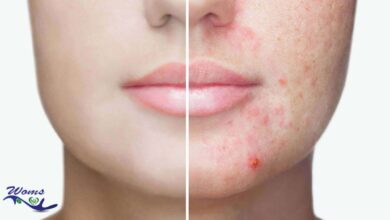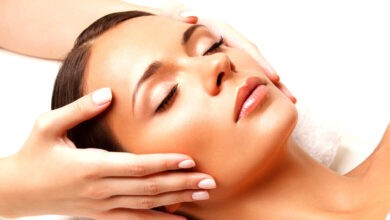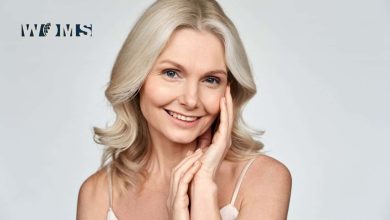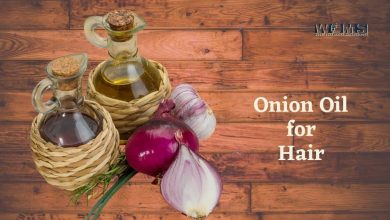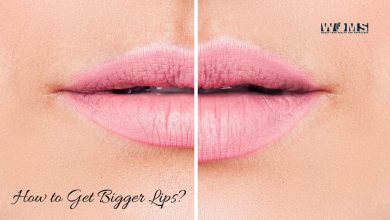Does Creatine Cause Acne? Truth or Myth
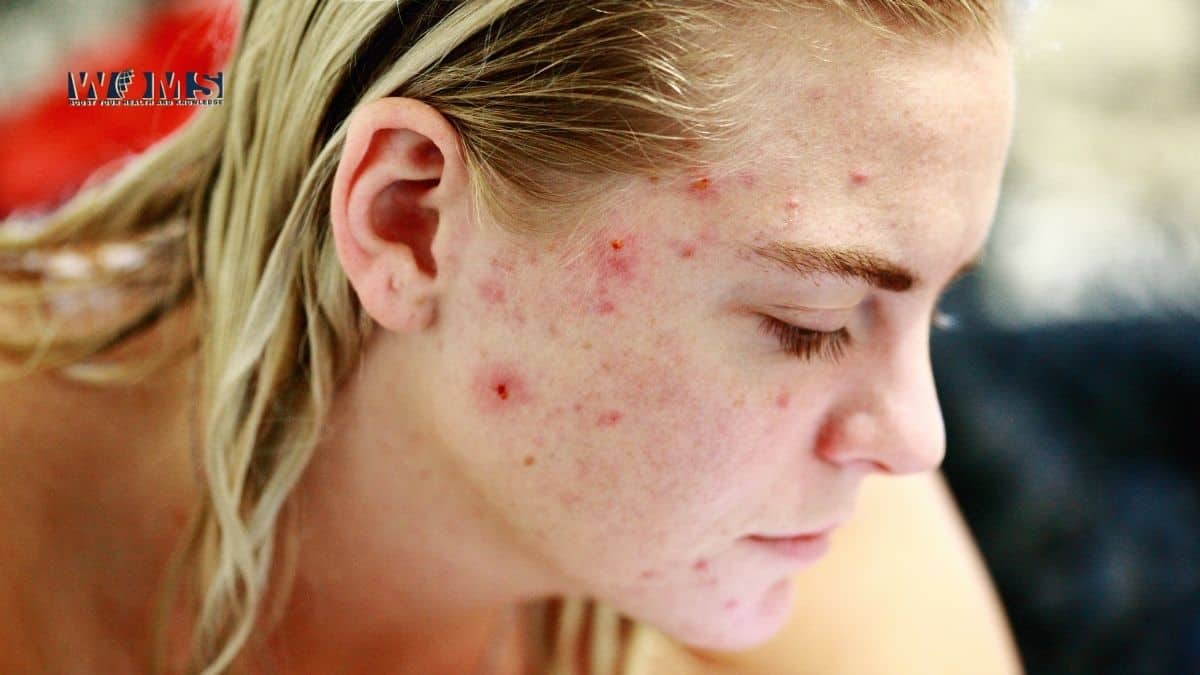
Does Creatine cause acne or Does Creatine cause acne breakouts have been the questions that many people want answers to. Creatine is a substance that occurs naturally in the human body. It’s found in red meat and shellfish as well and is frequently used to boost muscular strength and muscular development. Creatine is a nitrogenous organic acid that aids in the power production of muscles and organs, especially muscle.
Many people utilize it to boost athletic and fitness effectiveness. It can be administered orally as a powder or tablet, or it can be found in wellness and sports drinks, meals, and energy drinks. You also find creatine in certain foods, particularly meat, fish, and other animal-based products.
Creatine is a common amino acid found in the human body as well as some dietary. But, certain individuals would want to supplement it because of its capacity to aid mostly in the development of lean muscle in the living organism. Creatine supplement users are more likely to notice a connection involving creatine and acne.
Benefits of Creatine
Creatine can also be found in some foods, such as meat, fish, and other animal-based items. Creatine has several advantages in response to increased energy. These are:
- Decreasing cholesterol
- Lowering blood sugar, which can help prevent diabetes,
- Muscle mass increases
- Decreasing mental exhaustion
- Enhancing cognitive abilities
- Exercise performance improved.
- Congestive heart failure treatment
- Prevent bone loss
- Non-alcoholic fatty liver disease treatment
- Tiredness and fatigue are diminished.
- Enhancing clinical markers in neurological illnesses such muscular dystrophies, Huntington’s disease, Parkinson’s disease, and amyotrophic lateral sclerosis (ALS)
What is Acne?
Acne is a persistent, inflammatory skin condition that creates pimples and patches on the face, shoulders, back, neck, chest, and upper arms, among other places.
It is most frequent during puberty when the sebaceous glands become active, but it can happen at any age. It is not harmful, however, it might leave marks on the skin.
Acne manifests itself as whiteheads, blackheads, pimples, cysts, and abscesses. Male hormones released by the adrenal glands in both males and females trigger the glands, which create oil.
What Causes Acne?
Acne is caused by a combination of factors. Acne is caused by the stimulation of sebaceous (oil) ducts linked to hair follicles during adolescence or owing to other hormonal imbalances. Sebum (oil) is a biological lubricant and protectant for the body.
A modification mostly in the way human cells develop is attributed to greater oil production, making them more likely to block the opening of the follicles.
If the plug is coated by a tiny epidermis, it appears as a whitehead; if it is exposed to the atmosphere, the darkened revealed section of the plug is called a “blackhead.”
The clogged hair follicle broadens with time, resulting in a bulge. The membrane of the follicle can burst as it grows larger, enabling irritating substances and typical skin germs to enter the surrounding tissues, scar formation.
A pimple is formed by irritation at the top layer of skin; a papule (pimple) is formed by a deeper infection, and a cyst is formed by a much deeper inflammatory process.
Different Types Of Creatine
There are quite a variety of creatine supplements available, each of which has a particular effect on the human body.
Creatine monohydrate is the most frequent kind. Creatine monohydrate not only aids muscle growth but also aids in controlling the amount of water in the organelles, which has extra benefits of muscle development.
Other variants you can come across are:
Creatine magnesium chelate, Liquid creatine
Creatine hydrochloride, Buffered creatine,
Creatine ethyl ester.
Why Does Creatine Cause Acne?
There is no concrete proof indicating creatine is a causative factor of acne. Numerous complaints have emerged of individuals who take creatine and then spread it throughout their face. Some individuals see pimples forming after consuming creatine supplements.
Creatine, on the other hand, isn’t solely responsible for the outbreak. These supplements are used by people wanting to work out longer and harder, and the sweat that results can irritate the skin and cause acne breakouts. As a result, our concern continues unresolved.
Is it true that creatine causes acne? Not really, at least. Because creatine affects several tissues that have been connected to pimple outbursts, it might trigger acne indirectly in certain cases. Several individuals wrongly assume creatine and steroids are the same things.
People won’t obtain the masculine features that you could get through steroids if you use creatine supplements. Consuming creatine, on the other hand, can induce a rise in acne due to multiple hormones generated.
Dehydration might even result in a rise in acne. Considering the amount of water the supplement absorbs from the body, creatine consumers often feel extremely thirsty following taking it or will have to increase the amount of water they consume. Creatine has been shown to raise testosterone production in the blood, which can cause acne breakouts. Hope this has answered the question of why does creatine cause acne.
Consequences Of Consuming Creatine
Over the years, creatine has gotten a lot of criticism. Several people have also declared (incorrectly) that it is an anabolic steroid. It was declared undesirable for women and teenagers because of this idea.
Creatine, on the other hand, has been approved as a healthy substance for improving muscular strength. It has various advantages, which are detailed as follows.
The list of potential side effects of creatine includes heat intolerance, compartment syndrome, kidney damage, liver damage, diarrhea, weight gain, Nausea, gastrointestinal pain, dizziness, muscle cramping, bloating, Problems with digestion, kidney stones, dehydration.
Other Causes Of Acne Breakouts
Acne can be caused by a variety of factors, including sweating and dairy foods. Skin malformations can also be caused by the following.
- Smoking
Cigarette smoking does not just expose you to cancer-causing toxins, but it also deteriorates the collagen and elastin within the body, resulting in wrinkles. The carcinogens cause skin irritation, causing it to dry up and produce extra oil to balance. One of the most common causes of acne is excessive oil production.
- Dirty pillowcase
If you do not change your pillowcase frequently enough, germs, filth, and oil can accumulate. At bedtime, this substance spreads to one face, plugging your pores. That’s why it’s important to clean one face every night and your pillowcase once a week.
- Stress
If you’re under a lot of stress, your body generates higher cortisol. The oil vessels in the epidermis are overstimulated by this substance. One may clear up the skin by sleeping and doing something that releases hormones, helping fight cortisol.
Effective Acne Treatments
Although acne outbursts and pimples are unavoidable at a certain time in life, you don’t have to suffer with them for the long – term. There are a variety of treatment techniques that have been shown to effectively eliminate these irritating itchy bumps.
1. Benzoyl Peroxide
A common component in acne face washes and moisturizers, benzoyl peroxide works by lifting and removing excess sebum, grime, and dirt from your pores (acne-causing agents).
2. Glycolic Acid
This alpha-hydroxy acid helps to repair dead skin cells and eliminates pollutants from the surface of the skin. This helps avoid outbursts by reducing the blockage of the skin.
3. Retinoids
Among the most effective acne treatments, retinoids effectively reduce sebaceous (excess oil), debris, germs, as well as other acne-causing factors on the top layer of skin, preventing potential outbursts. This potent medication has also been shown to prevent the formation of skin damage, keeping solely clear, glowing skin intact.
Do read: Best Home remedies for acne
Conclusion
Creatine can induce acne breakouts, but individuals are vulnerable to it in the first place. Creatine supplements are usually harmless and have few adverse effects on most users. It has earned a lot of attention as a result of its advantages of enhancing muscle development and power increases.
Creatine and acne have never been demonstrated to be linked. In reality, creatine may be beneficial to your skin, particularly in combating the effects of aging. Creatine may help with sagging skin, scars, and UV exposure, according to certain research.
FAQs
Could It Be True That Creatine Causes Acne?
There is no documented correlation connecting creatine and acne, nor is there any proof of how it can worsen acne. In reality, creatine is one of the least harmful and most powerful muscle-building supplements available.
Why Is It Possible That Creatine Causes Acne?
One explanation is that creatine consumption raises the hormone dihydrotestosterone, generally known as DHT. DHT levels might rise by as much as 50% in people who take creatine supplements, according to studies.
What Is The Effect Of Creatine On The Skin?
If you aren’t genetically predisposed to acne, creatine can help. In addition, it can help to decrease wrinkling and sagging skin, as well as protect against Uv exposure.
What Causes You To Break Out When You Take Creatine?
Creatine disrupts the human bodies’ natural hormone levels by raising testosterone levels. Creatine supplements can exacerbate the severity and duration of acne breakouts in people who are susceptible to them.
Why Is It Necessary To Stop Using Creatine?
Consuming creatine for a lengthy moment, like over 8 weeks, reduces the beneficial effects creatine has on the human system. People continue to supplement with creatine. Since you’ve been consuming creatine for eight weeks, this should stay in the body, but staying away will enable users to get better outcomes whenever you resume the creatine routine.
